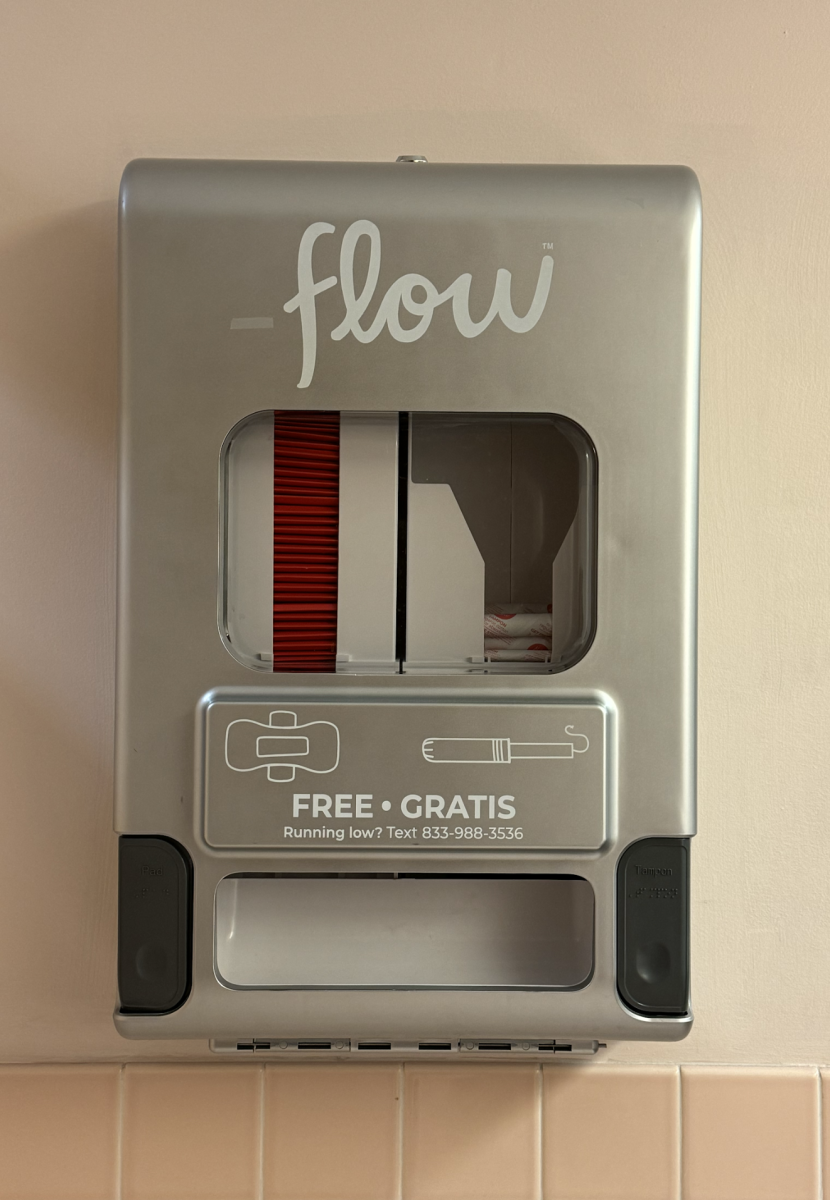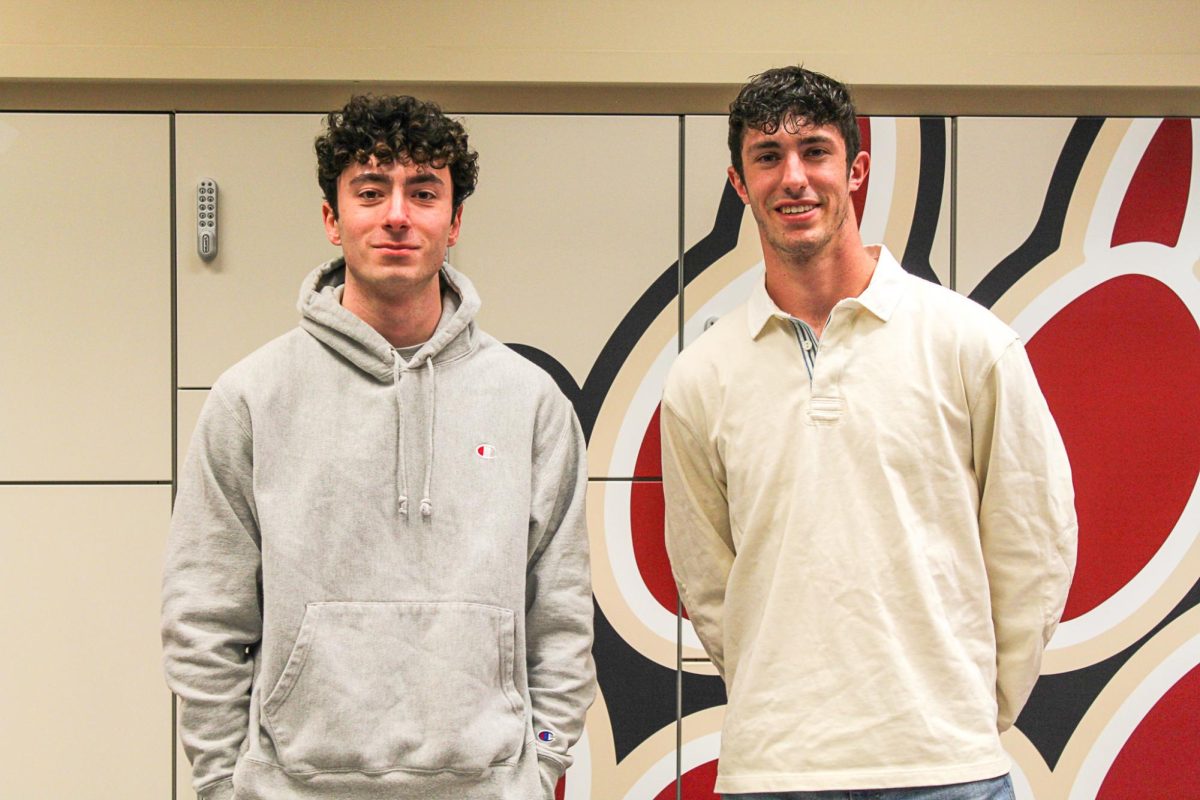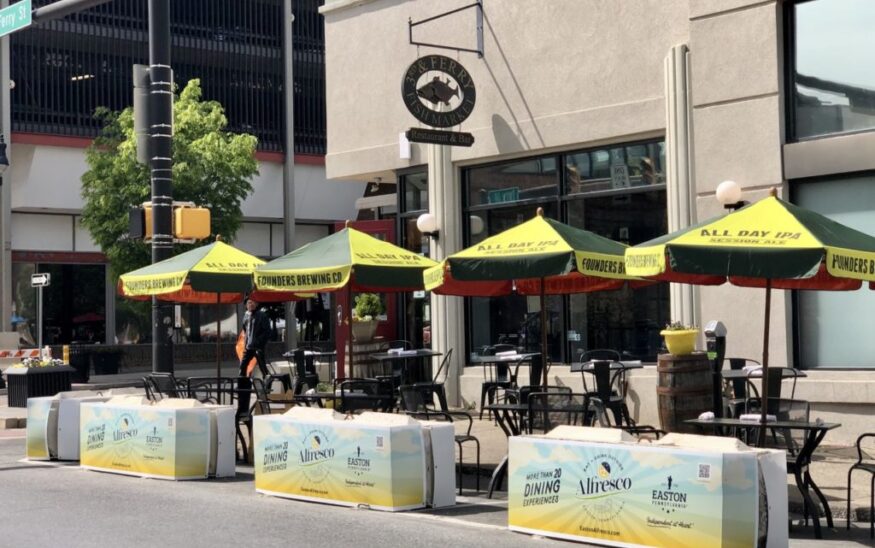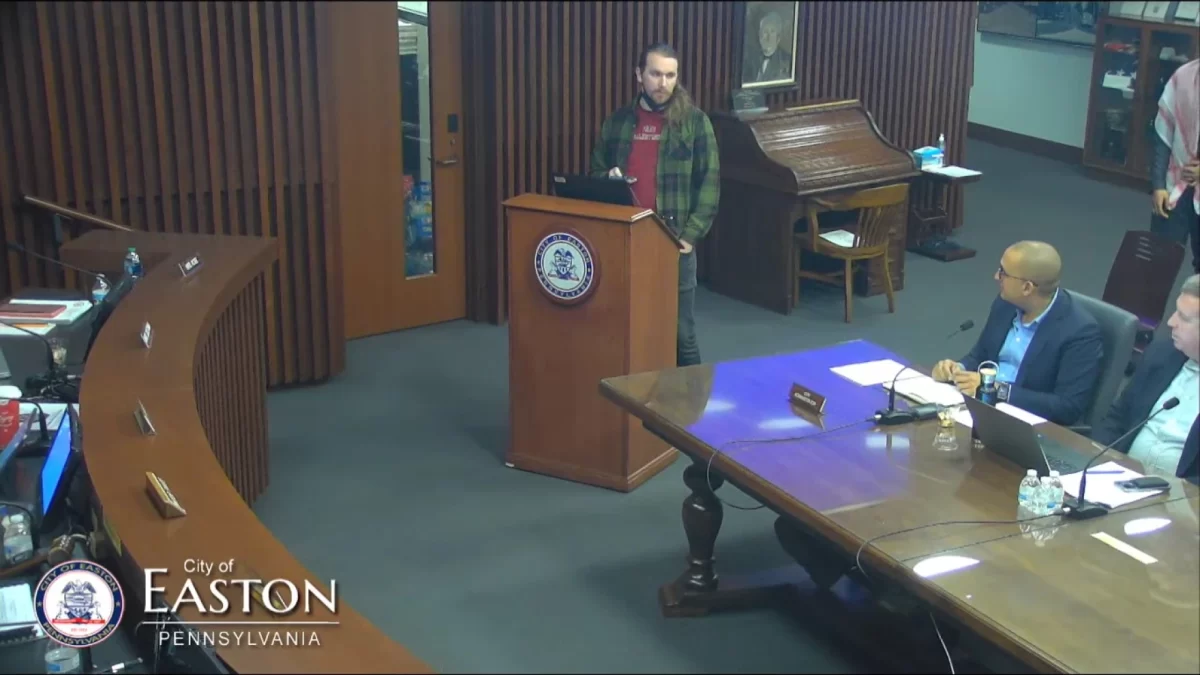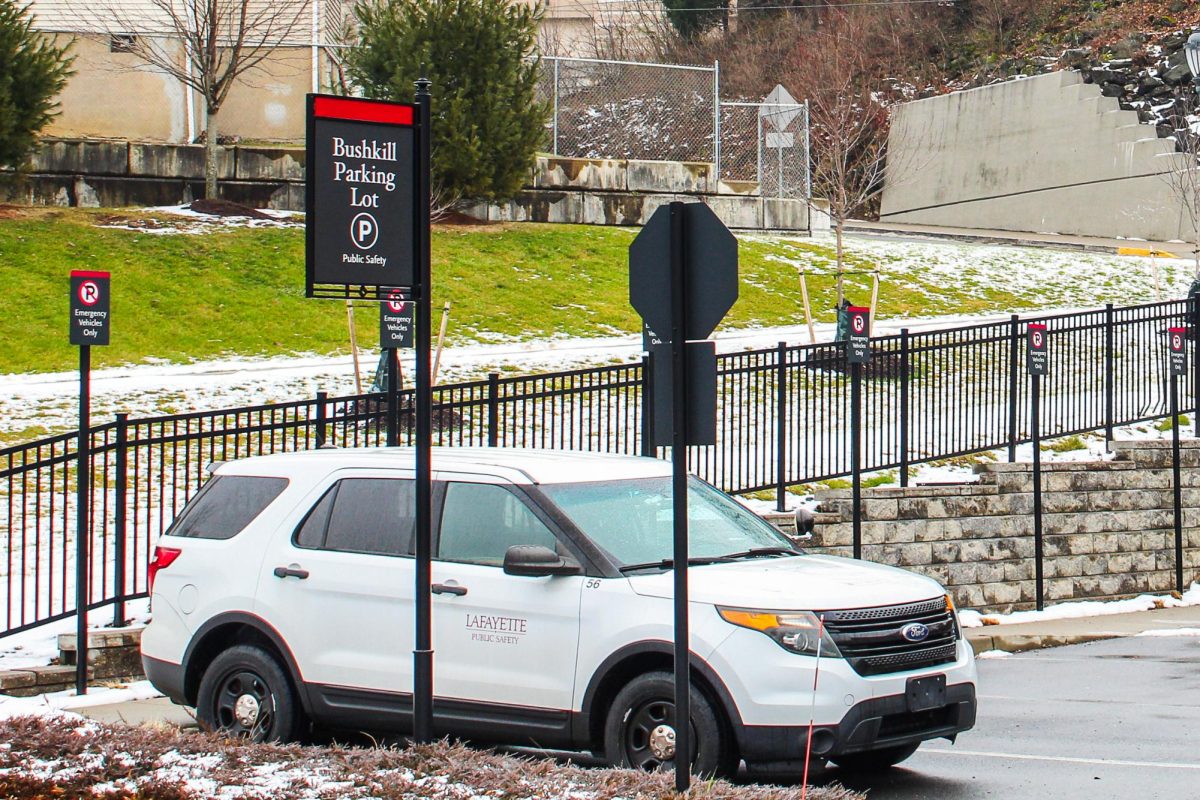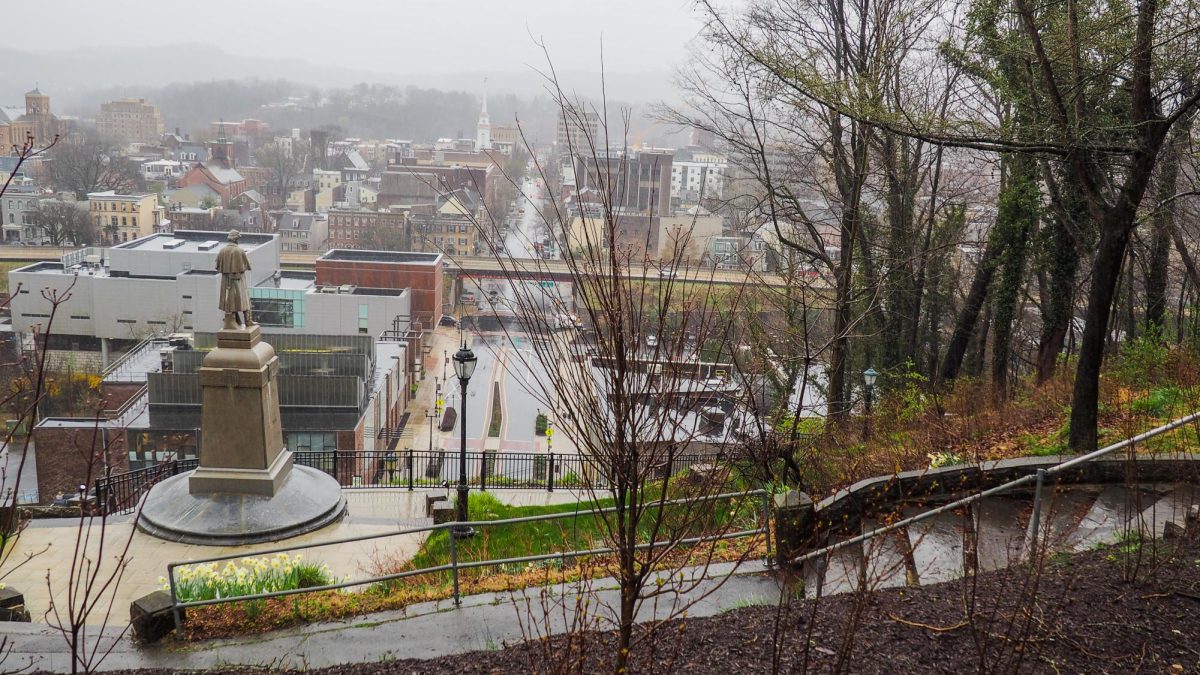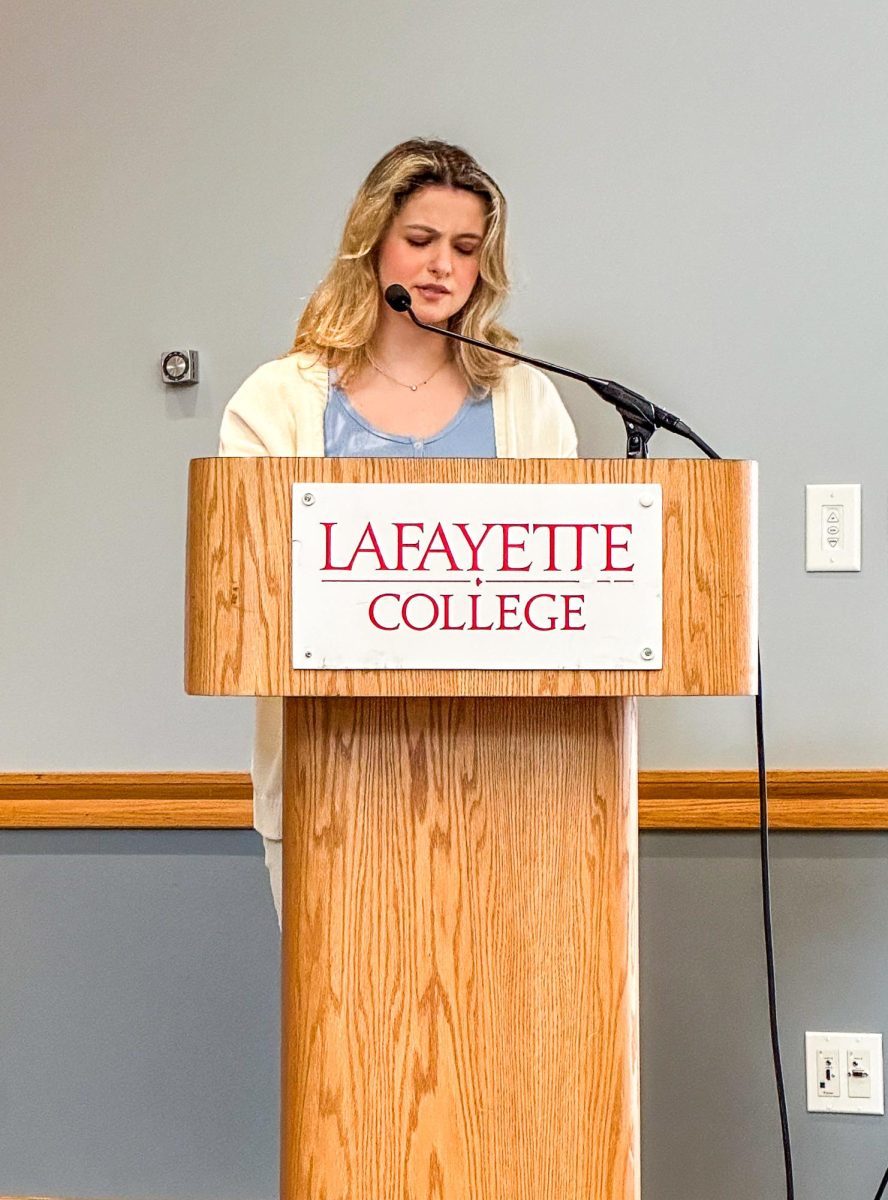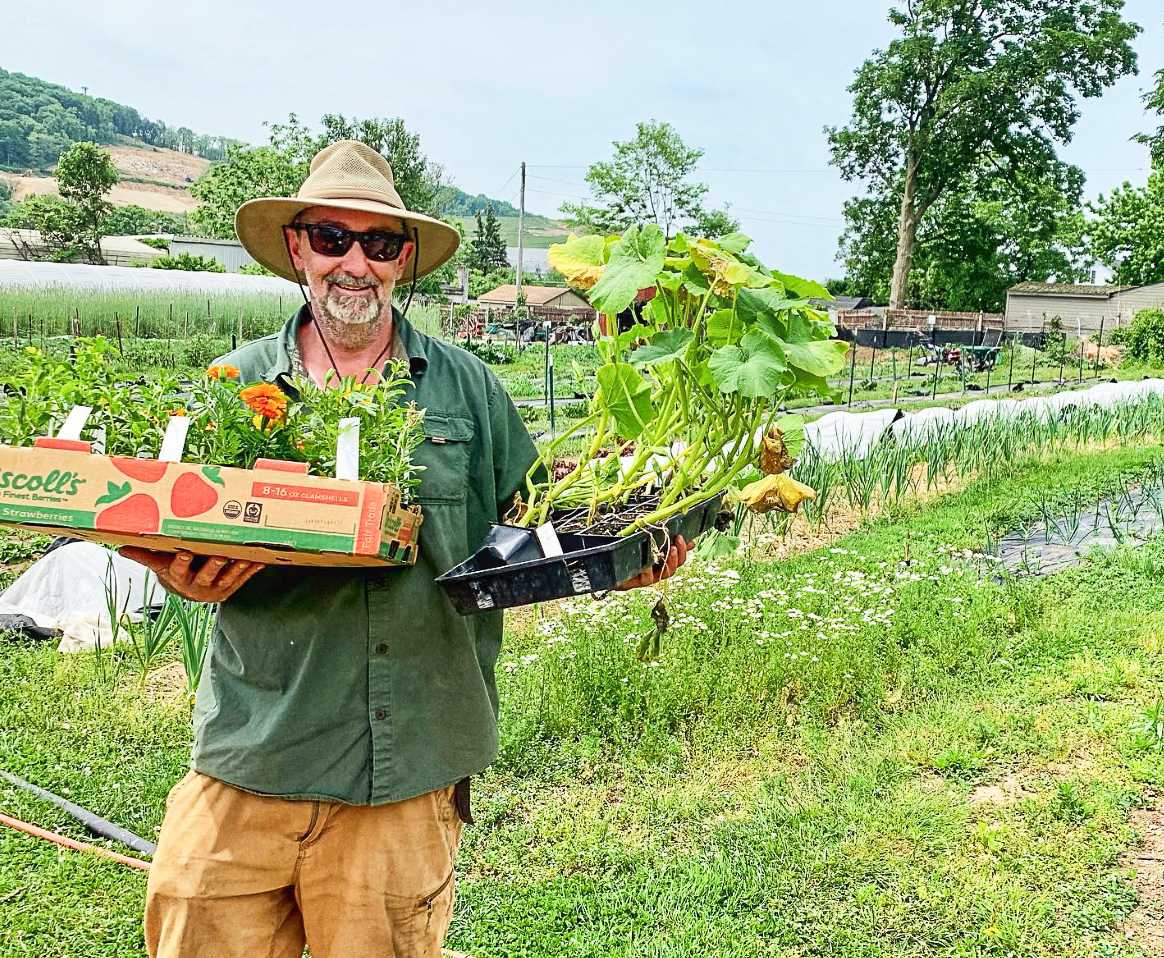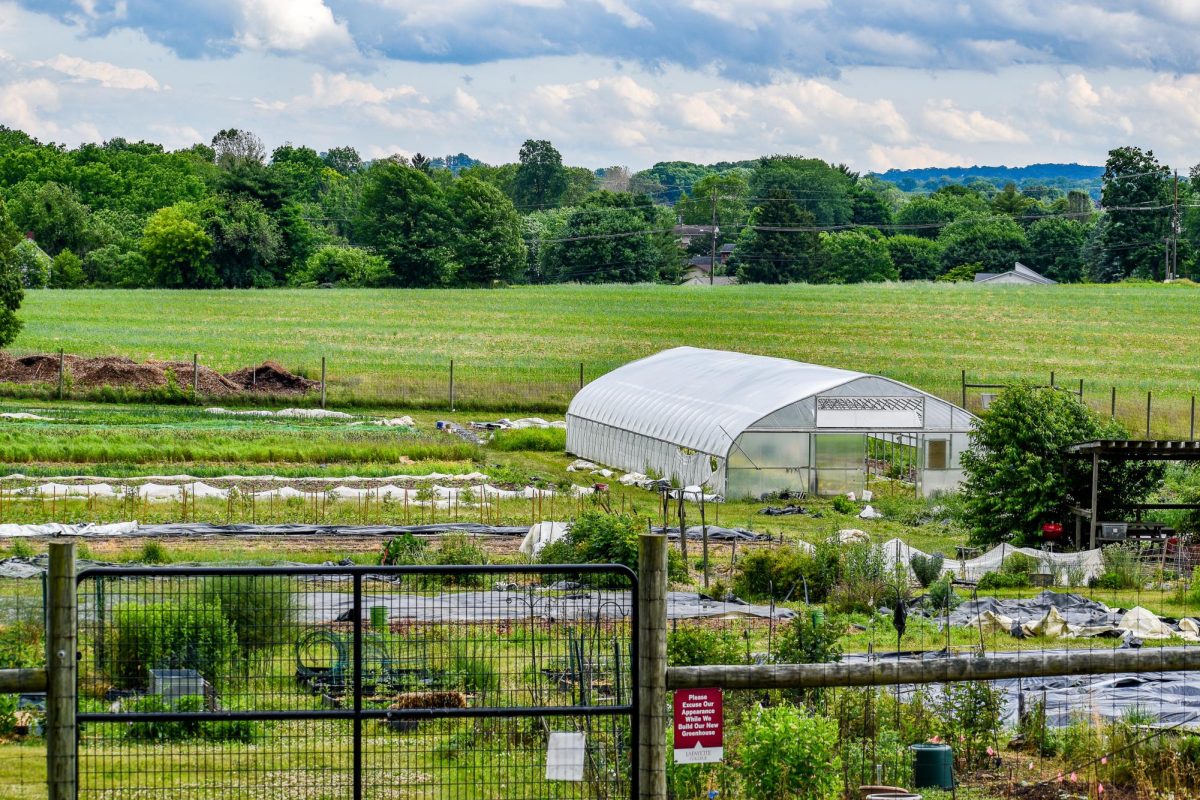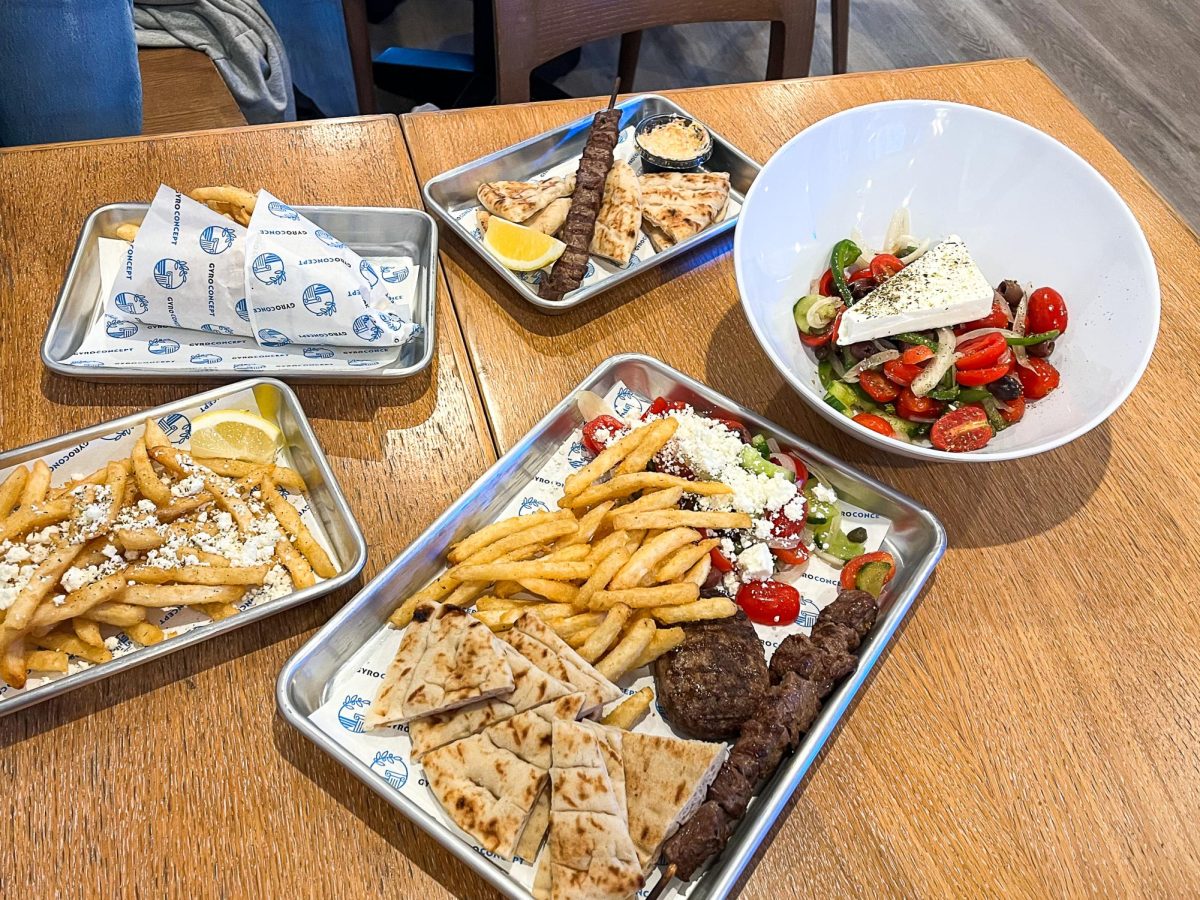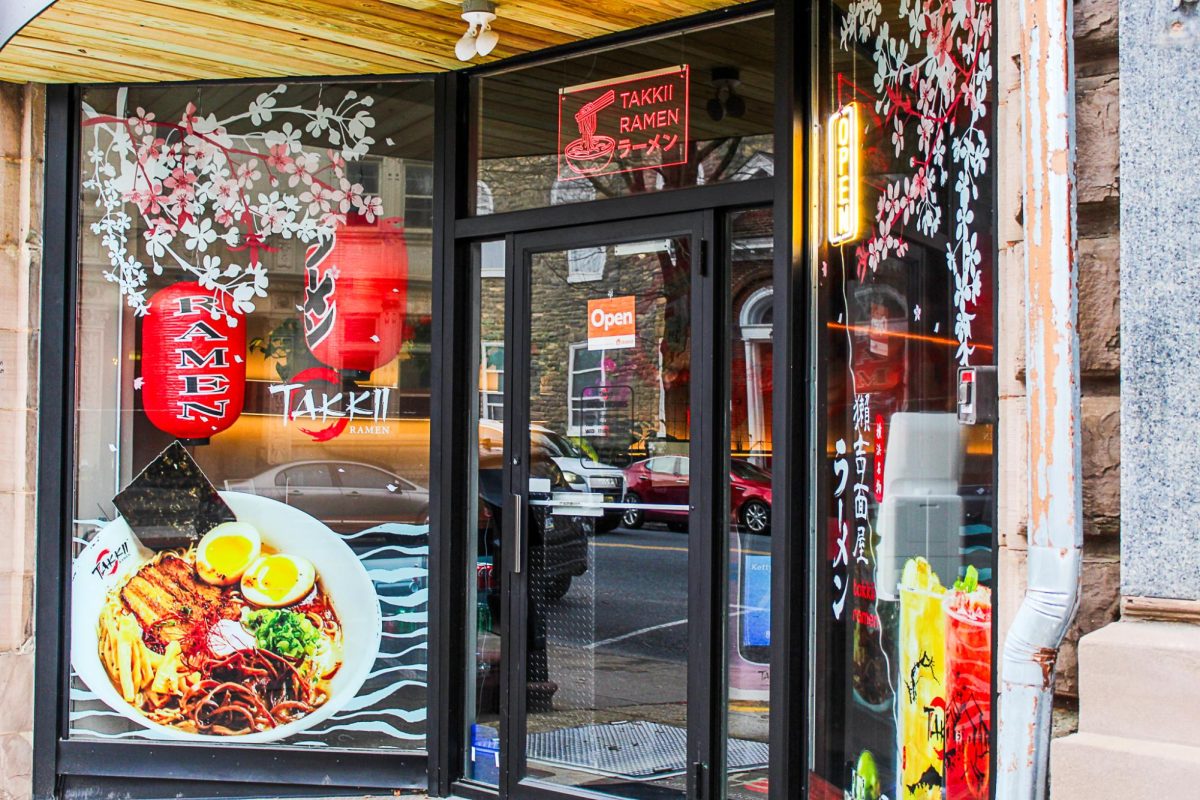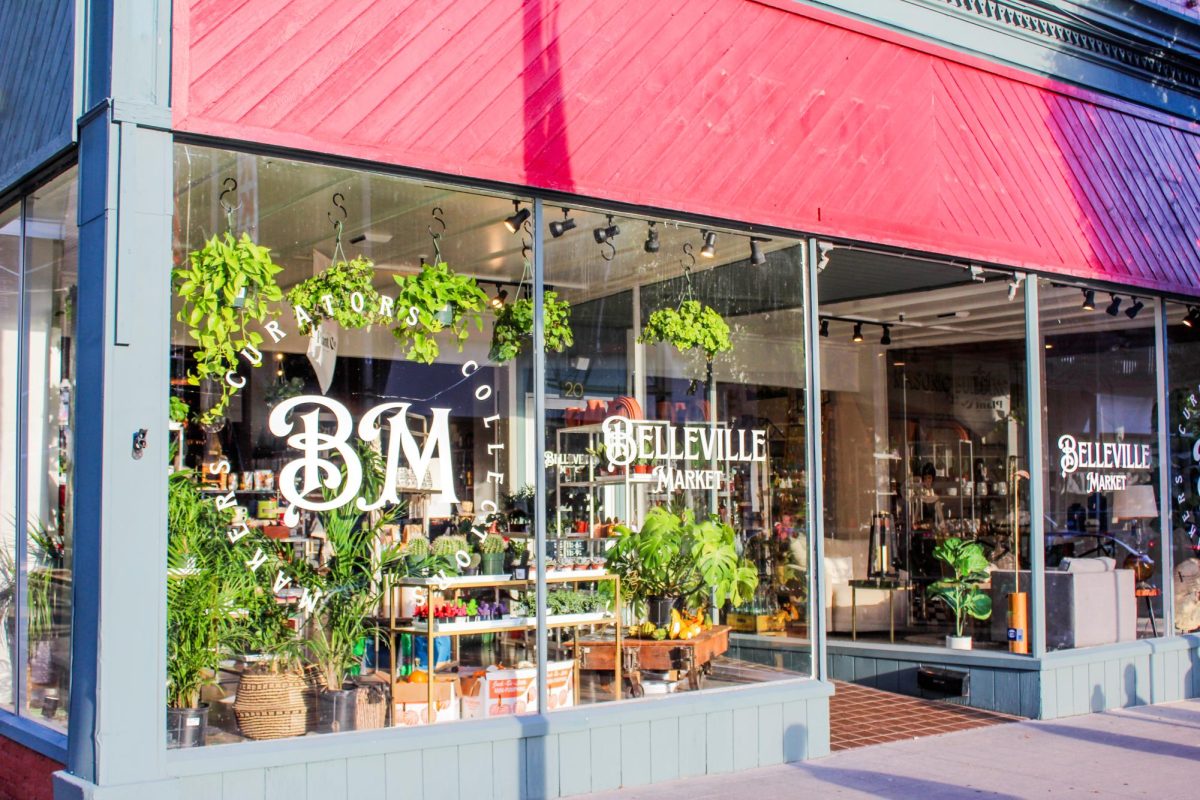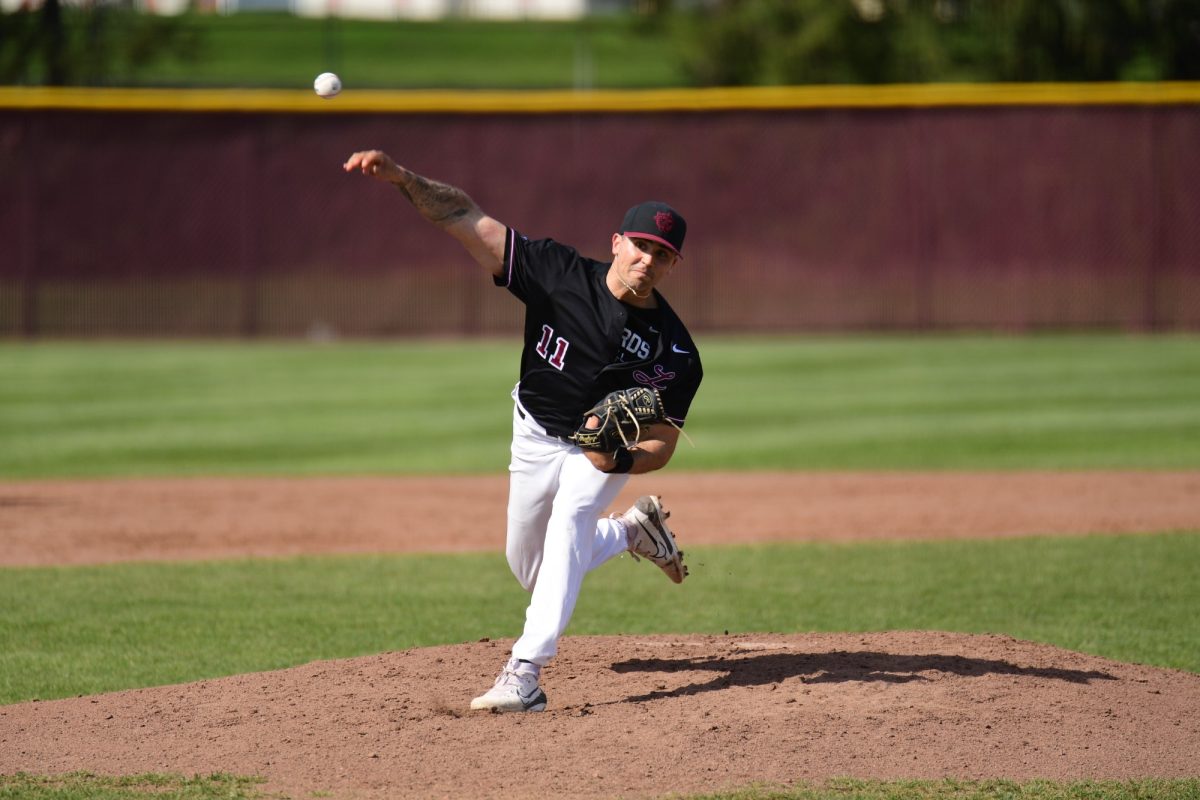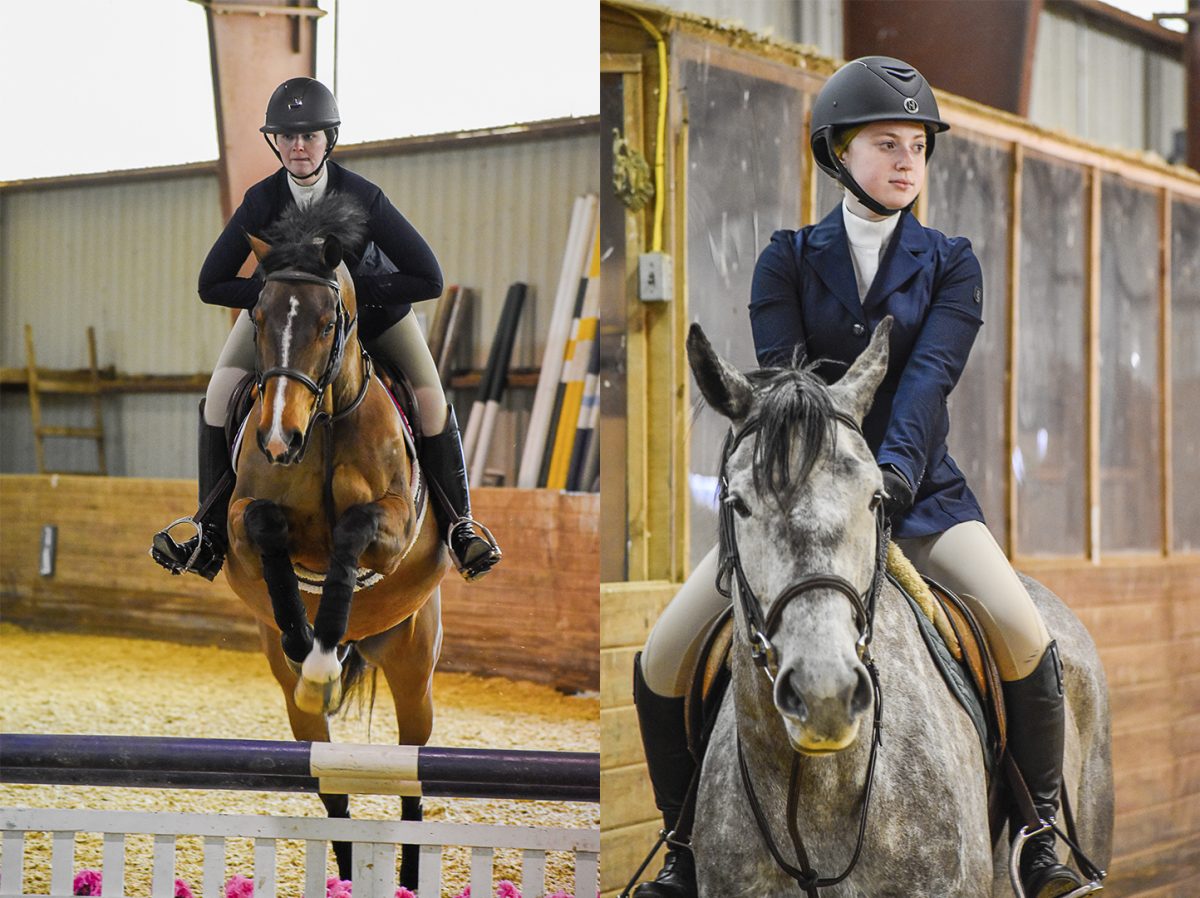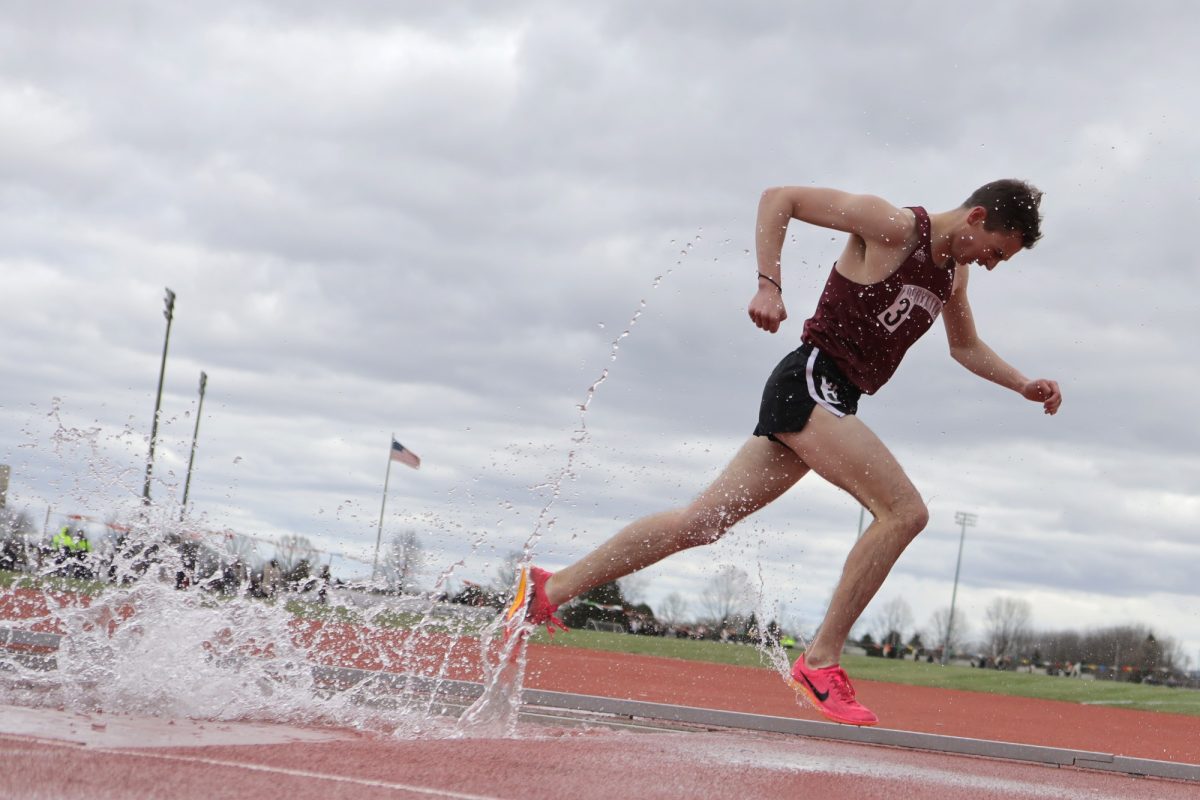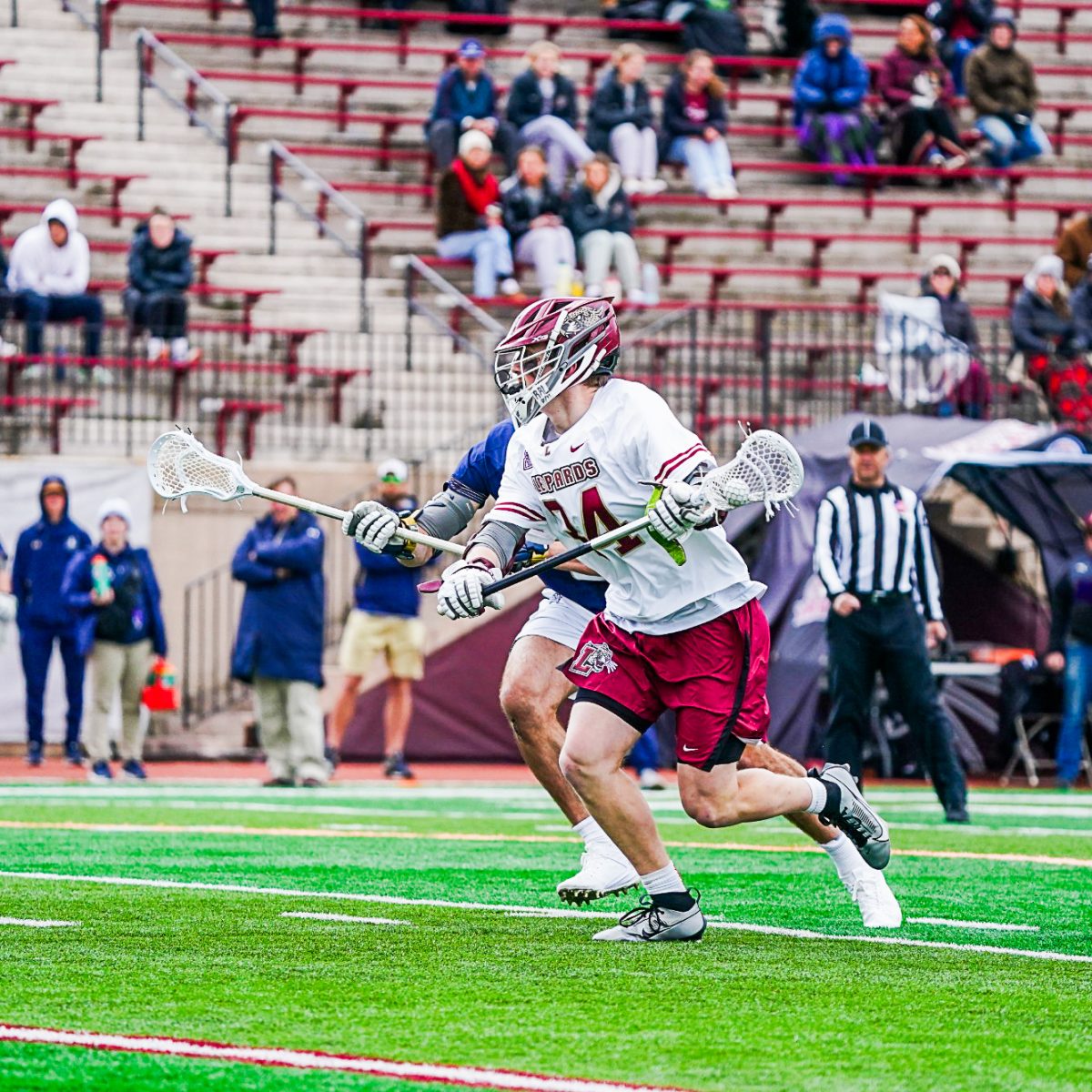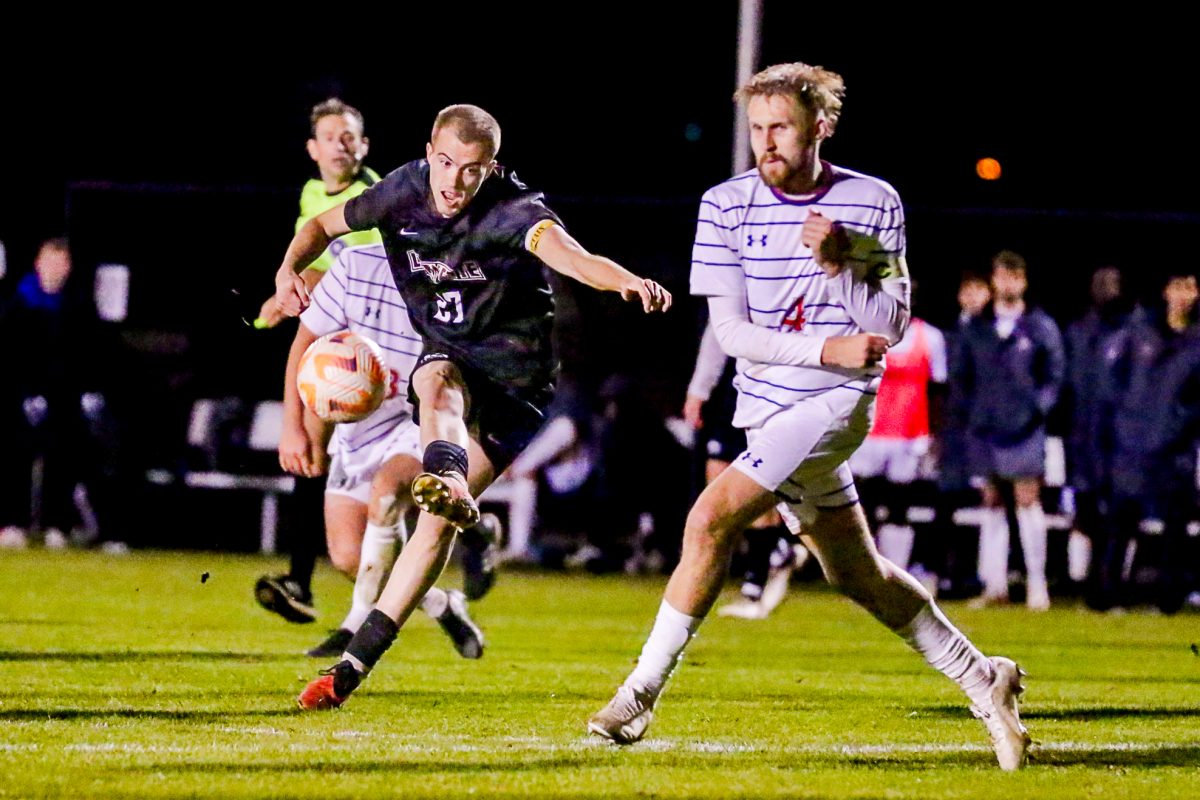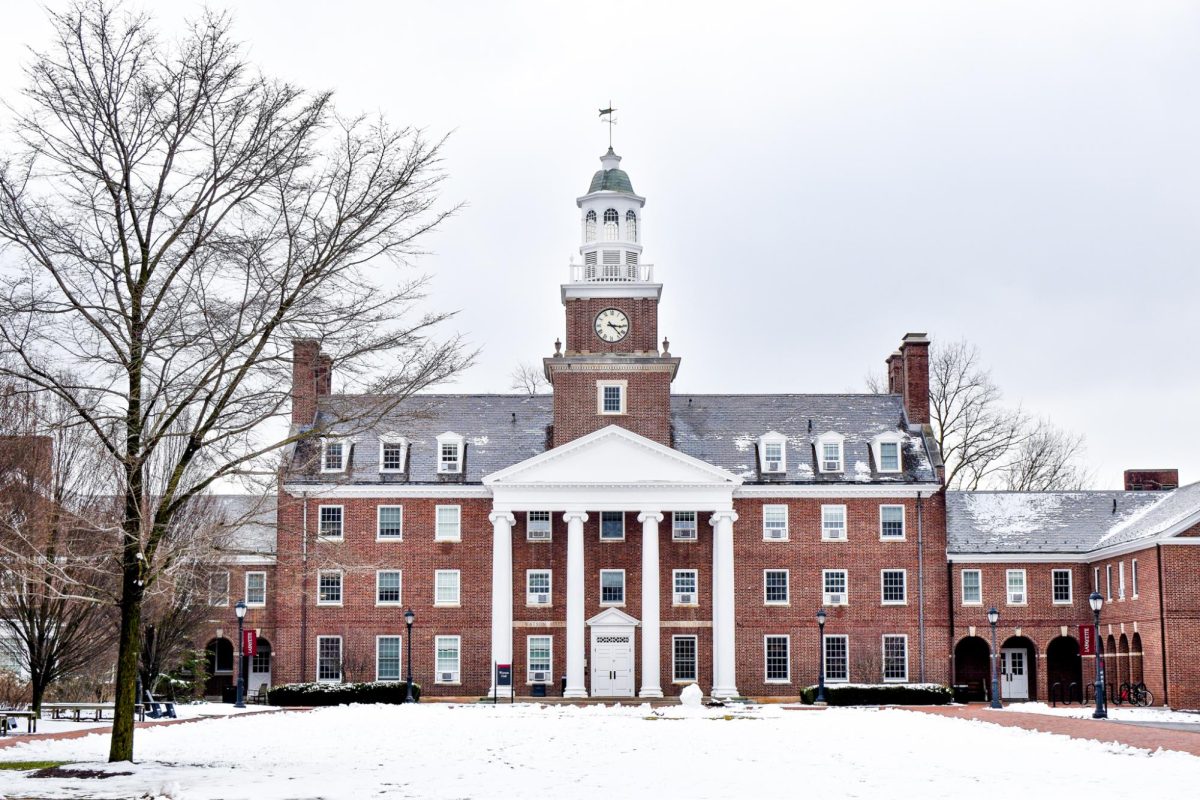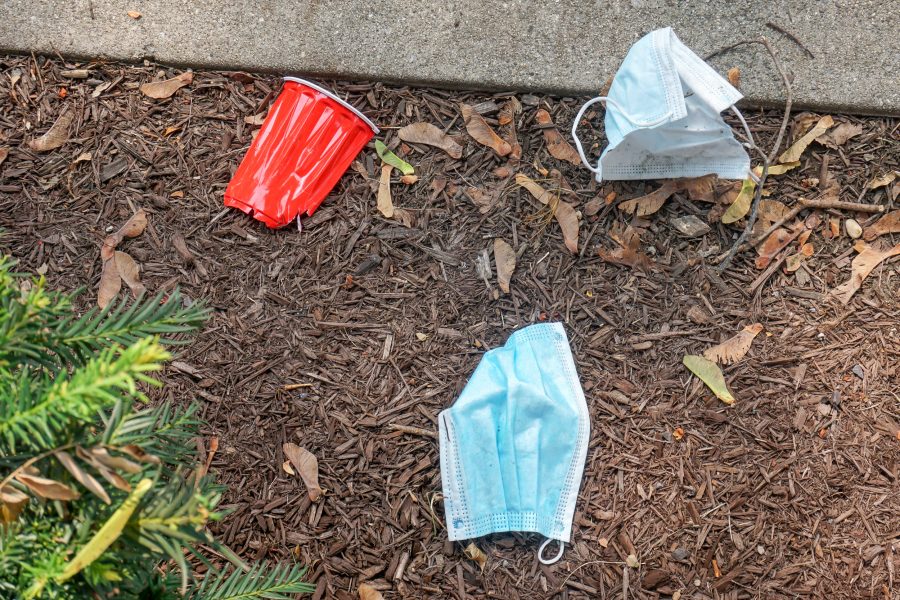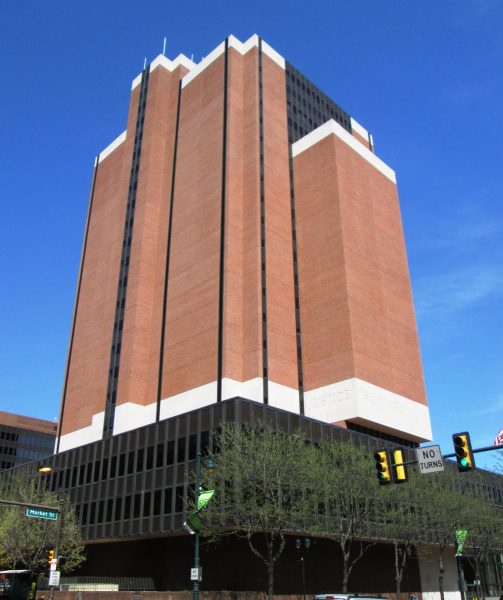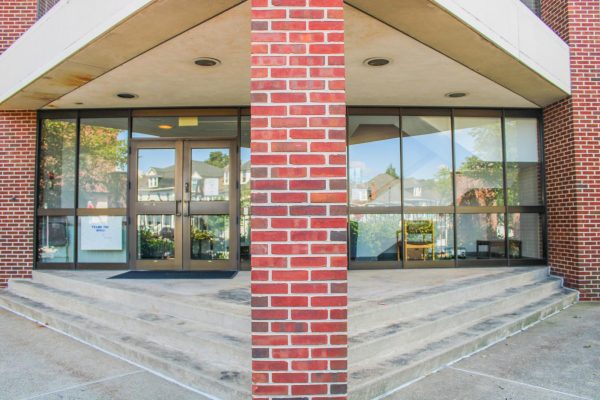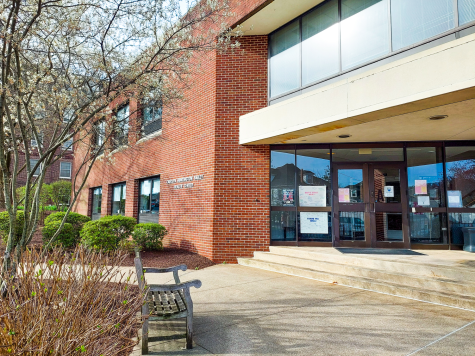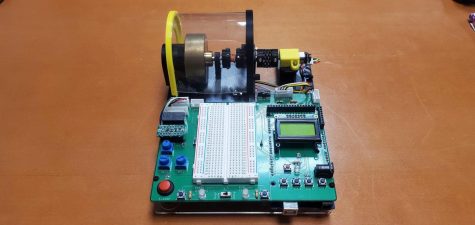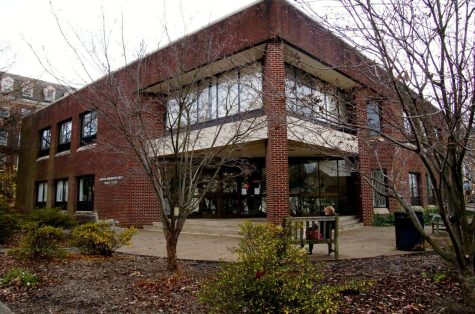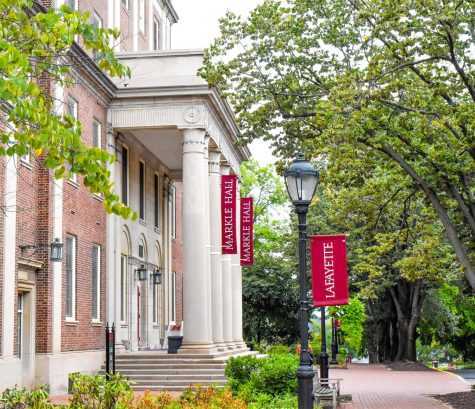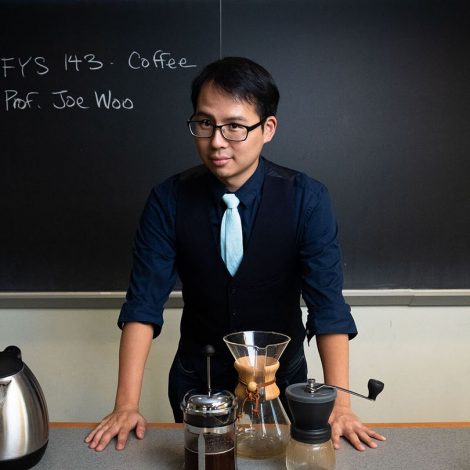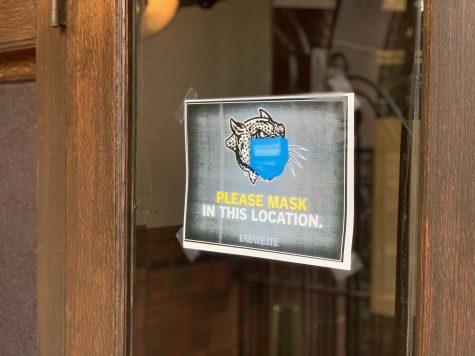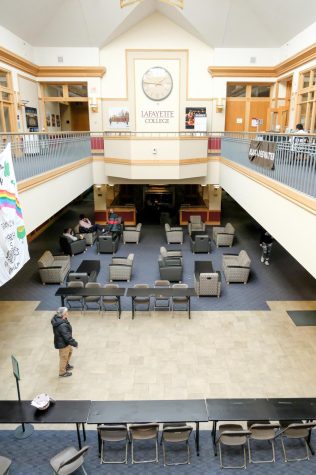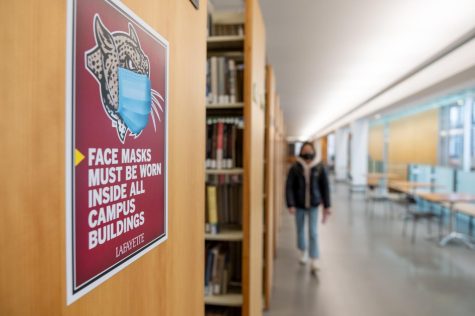Over 100 COVID-19 cases in five days leads to confusion and chaos
An email from the college was sent to all affiliated students this past week prohibiting any in-person social events with new members. (Photo by Pierson White ’24)
September 17, 2021
Despite almost 100% of students being vaccinated, this week Lafayette experienced its largest spike in COVID-19 cases on campus to date. As of Thursday morning, the college has reported 111 cases from among the student body and zero from faculty and staff.
This spike resembles similar trends across the country, where even populations vaccinated at high rates are still seeing their numbers jump, Director of Health Services Dr. Jeffrey Goldstein explained.
“Although I expected a number of breakthrough cases, I didn’t expect the number to be as high and compacted into a small number of days,” Goldstein said.
Driven by the COVID-19 Delta variant, 99% of new cases across the Lehigh Valley and the country are caused by this strain. Although the college is not asking the labs they work with to test for the strain, Goldstein said that “if you have covid, you have Delta.”
The sudden spike overwhelmed the college, leading to long testing lines, limited testing capability early in the week and confusion among students who were informed of their exposure by peers but did not receive instruction from the college on how to proceed.
“There’s no question that [the health center was] caught off guard by a number of students who either were not close contacts and wanted to be tested, or who felt they were needing to be tested and asymptomatic, and then there were other students who were symptomatic who were struggling to get testing,” Vice President of Campus Life Annette Diorio said.
“They were struggling, and I know that [they were] on Monday. They added resources by Tuesday morning, and I believe [on Tuesday and Wednesday] it’s been running very smoothly. They’ve got a separate tent set up on the side with separate staff and students are able to just walk up and do their test,” she added.
Last semester, each student who tested positive for covid was given isolation housing on or near campus. This semester, any student who tests positive and lives within a 300-mile radius of the college will be sent home, according to campus protocols released by the college.
Diorio declined to comment on if the college is supporting students within 300 miles who are not going home but are instead paying for housing at a hotel or other location while they recover. However, the college is providing emergency funding for students facing extenuating circumstances as a result of the pandemic.
Isolation housing for students living outside of the 300-mile radius is limited.
“I think it’s about 63 spaces or something like that; they’re not rooms but they’re spaces, so students are having roommates when they’re going into isolation,” Diorio said. “I think we have had the majority of students be able to go home and have gone home, so we’re not using all the space, but we’re closing in on it, I would say.”
These on-campus spaces are located in the Weiss House or on the 100 block of McCartney Street. Diorio explained that the Weiss House ran out of beds by Monday afternoon, and the college struggled to keep up with providing adequate food for students in isolation.
“Initially, the food situation was the biggest grievance for everyone here. [Tuesday] they resolved that by giving us food. But the initial plan was that for every meal, you needed to have a friend deliver it to you,” Will Chabala ‘22, who has been in isolation in the Weiss House since Saturday, said. “Thankfully I had a professor deliver my food to me…which was really nice.”
“What really annoyed me was that [last] Sunday we were sitting outside without food, and then we were able to watch the President’s House have a fully catered event. That just really angered a lot of us,” Chabala added.
The college has largely caught up with the spike and continues to work out any remaining kinks such as food issues, Diorio said.
This spike is the aftermath of the fall rush season for Greek organizations and the lack of restrictions limiting social gatherings from the college.
“The vast majority of positive cases are stemming from members of the Greek community and those who participated in recruitment events over the last week or so. This means [affiliated students] need to take some extra steps to ensure the safety of your members and the rest of the Lafayette community,” Associate Director of Student Involvement and Advisor to Fraternity & Sorority Life Jake Bates wrote in an email to all fraternity and sorority students on campus last Wednesday.
Bates wrote that Greek organizations were informed to not host any social events for at least the next ten days until the school had a better grip on slowing the spread and testing students. However, with students only being required to get a test if they are symptomatic or marked as a close contact, it is up to the individual to choose to get tested. Additionally, there is no way to enforce whether students report their positive test result to the college if it is an at-home test or administered by an outside testing location.
“I expected and predicted this would happen before the outbreak. That students, knowing the consequences of having a positive test and what that meant to the individual and to their social group, that the health consequences were less than the non-health consequences,” Goldstein said. “What I really stress to the students who feel that way, is that they are doing an incredible disservice to the greater community by getting the virus and not getting tested, and potentially spreading it to a more vulnerable student, or employee, or individual in the community.”
Lafayette currently does not plan to move classes virtually or restrict access to dining halls and other activities because the majority of students are vaccinated, Diorio explained. However, if cases keep going up the College may need to reevaluate its stance.
“We need to buckle down again as a community, unfortunately. We hoped to be back to normal, but we’re not. We just have to do everything possible to lock arms,” Goldstein said. “We’re covid fatigued, and we’re so tired of it, my staff, more than anybody else on campus, probably. But we just have to do what we need to do to get the outbreak under control.”


